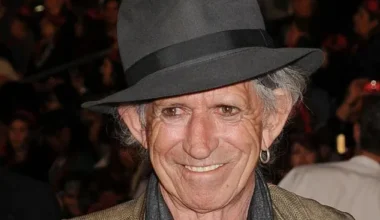When a member of a band passes away, it can profoundly affect the band’s music. It’s not just the loss of a talented musician and a dear friend; it can also bring about changes in how the band creates music and works together.
Not to forget, it affects the overall vibe within the group. Depending on the role the departed member played in the band, their absence can create a significant gap that’s hard to fill.
Consequently, the remaining members may have to adapt their musical style, instruments, or how they write songs to make up for the loss and redefine their sound. Sometimes, this process can lead to a fresh burst of creativity and growth; in other cases, it can spell the band’s decline or even the end.
In the case of AC/DC, the band faced such a challenge when they lost Malcolm Young. Malcolm was a crucial part of the band, contributing as the rhythm guitarist, backing vocalist, lyricist, and the creative genius behind their music. While his brother Angus often took the spotlight, it was Malcolm who shaped the band’s distinctive sound. So, his loss was emotionally devastating and a game-changer for the band.
In a 1983 interview with Guitar Player, Angus Young revealed that he and Malcolm sometimes had intense disagreements. However, these disagreements were rooted in their mutual desire for excellence. Malcolm’s exacting standards and musical brilliance inspired Angus. Angus recalled that if Malcolm wanted the guitar solos to “rock like thunder,” they had to ensure they did just that.
Malcolm wasn’t afraid to ask Angus to redo his solos if they didn’t fit the song or weren’t up to the rock standards they set for themselves. According to Angus, their focus was always on the songs, and he found it pointless to spend countless hours perfecting a guitar solo.
Angus Young also reflected on whether being brothers influenced their musical collaboration. He mentioned that being brothers meant they could be blunt with each other, with a good rapport that allowed for direct communication. Malcolm’s high musical standards and intense focus were inspirational, but at times, he could push things to extremes.
Malcolm played a pivotal role in pushing Angus to the forefront during live shows and helped him become the face of AC/DC. The Guitar Player interview took place years before Malcolm Young’s retirement in 2014. Sadly, three years after retiring due to dementia, Malcolm passed away, leaving a significant void in the band.
Even after Malcolm Young’s passing, AC/DC continued to create music as a band, driven by the belief that it was what Malcolm wanted. Filling Malcolm’s shoes was impossible, but the band was determined to preserve AC/DC’s signature sound.
Their first album after Malcolm’s death, ‘Power Up,’ released in 2020, served as a tribute to him. Angus Young remained the sole original member, carrying the band’s legacy forward. ‘Power Up’ received positive reviews from music critics, capturing the essence of AC/DC. However, Angus faced the weighty responsibility of carrying the band’s torch.
Some critics argued that the album was overproduced, but others praised AC/DC’s consistency and Angus’s dedication to honoring Malcolm’s memory. Malcolm’s influence was unmistakable in ‘Power Up,’ as Angus incorporated his brother’s guitar ideas into the album.
Malcolm Young’s absence was palpable, but AC/DC, led by Angus Young and the remaining members, did their utmost to preserve the band’s iconic sound and pay homage to Malcolm’s legacy by doing what they did best: refining their unique musical style.







